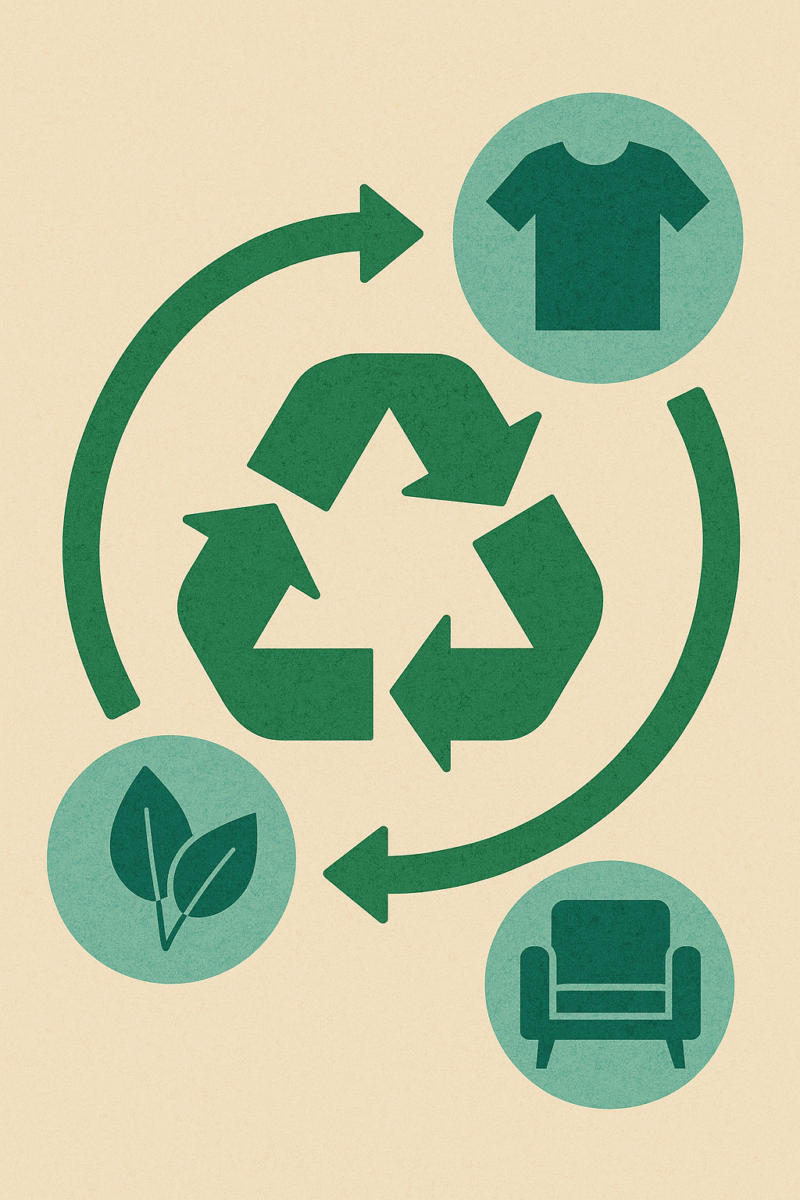Axfoundation boosts circular solutions in SwePass
In SwePass, the textile demonstrator and the policy lab are key arenas for testing and learning. Here, Axfoundation brings expertise in business models and data use to enable circularity in practice.
– Our participation in SwePass builds on several of our earlier initiatives, including ProPare, which piloted product passports, and the Fiber Traceability Initiative, which developed a prototype for traceability in a wool value chain, says Stina Behrens, Project Manager for Future Materials at Axfoundation.
From textiles to furniture
In the textile demonstrator, led by RISE, digital tools and carriers such as RFID are tested. The aim is to increase traceability in textile flows and enable better sorting for reuse and recycling.
In the policy lab, also coordinated by RISE, the focus is on furniture. The work connects industry needs with upcoming EU regulation, especially ESPR. Through workshops and dialogue with authorities, the goal is to shape rules that push innovation while making it easier for companies to adapt.
Digital product passports as a catalyst
The work in SwePass builds on earlier projects such as ReValue and the Digital Policy Lab for circular furniture flows. Both show how digital product passports (DPP) can support resale, reuse, and more efficient material handling.
– For us, DPP is a tool that can become a true catalyst in the transition. It’s not only about meeting upcoming regulatory requirements, but also about creating business value and sustainability benefits at the same time, says Stina Behrens.
A DPP gives each product a unique ID and a logbook that follows it through its lifecycle. This creates transparency and new opportunities for repair, reuse, and recycling.
Why collaboration and policy matter
EU is now driving a major shift towards circular value chains. ESPR is central in this. But regulation must connect with business reality. Small and medium-sized companies often lack resources to manage complex demands. They need both standards and support structures.
That is why collaboration is essential. SwePass offers a platform where industry, academia, and civil society can meet. Together they test solutions, influence standards, and support policy development.
Benefits for consumers and society
At its core, SwePass is about strengthening traceability in value chains. If successful, it will give consumers more trust and better options to make sustainable choices. For industry, it provides tools to meet new demands. In the long run, SwePass can help make circular business models the norm, cut climate impact, and ensure resources are used more efficiently.
